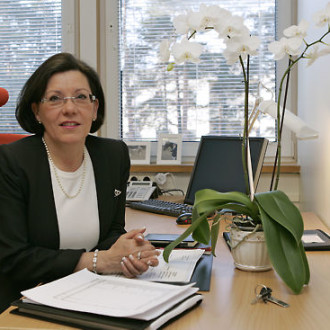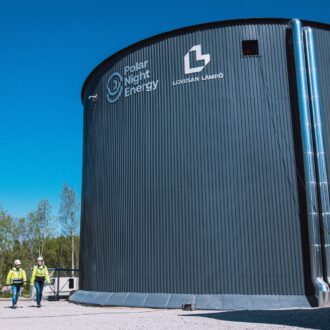Finland has a lot to offer: a high standard of living, a safe and well-functioning society and easy access to nature. The UN’s World Happiness Report named it the happiest country on earth many years in a row.
It also has jobs. As the baby-boom generation retires, Finland needs more people in the workforce.
Living and working in Finland

One attractive aspect of living in Finland is proximity to nature and recreation areas, even in urban areas. These cyclists have visited the beach in Tahmela, a neighbourhood in the southern central Finnish city of Tampere.Photo: Laura Vanzo/Visit Tampere
There are many benefits to working in Finland. Thriving, innovative industries offer plenty of opportunities to advance your career and develop your skills. In addition, Finnish people know that life is more than just work, so a healthy work-life balance is important to them.
Finland is a safe, stable, functioning society where public services such as healthcare and public transportation run smoothly. The country also has thriving sports, recreation and culture scenes. Beautiful nature areas and wilderness are easily accessible, even from the largest cities. All children and adolescents enjoy excellent educational opportunities in one of the world’s best education systems, free of charge.
Looking outward

A dad and his child spend quality family time at Rauhaniemi, a lakeside park not far from downtown Tampere.Photo: Laura Vanzo/Visit Tampere
Many Finnish employers are accustomed to recruiting people from abroad. The high-tech sectors have experienced the largest increase in job openings in recent years. Manufacturing and the service sector are also predicted to need more workers in the coming years.
In the past, it was accurate to some extent to say that Finland was a homogenous country. However, we have always looked outward, and today that is truer than ever. As a company grows, it typically needs to expand internationally because the domestic market has a limited size. Young entrepreneurs go global immediately when they start a new business – their generation was born global.
Labour mobility

These guys are helping build energy-efficient housing in Helsinki.Photo: Jukka Rapo/Keksi/Finland Image Bank
As a member of the EU, we enjoy labour mobility. In 2020, a total of 32,898 people moved to Finland, while 15,084 emigrated from the country. Work-related immigration and social integration form part of the agenda of policymakers.
High-tech and gaming

Finnish companies in the high-tech and gaming sectors recruit domestically and internationally.Photo: Jarno Mela/Finland Image Bank
Finland has a large and highly developed technology sector. For decades, Finnish companies and Finnish technology have played a major role in sectors such as mobile technology, electronics, cybersecurity, software and gaming. These companies are always looking for talented professionals and often recruit from abroad.
It’s no secret that Finland is great place to progress in a career in ICT, the gaming industry or digitalisation. The country’s innovations enable companies and individuals around the world to enjoy experiences and solutions like never before. Finland was the one to bring 5G, SMS, and the Linux operating system to the world, to mention just a few examples. Finnish ICT companies offer rewarding job opportunities to international talent eager for career advancement.
Explore the industry on Business Finland’s website to see how to join other talented professionals in Finland in creating the ICT and digitalisation innovations of the future.
Finland has thriving ecosystems in bioeconomy and health technology, where leading companies develop new solutions together with universities, research institutions and startups. These fields offer unique career opportunities in projects that are solving worldwide problems. Read more about the bioeconomy and health and wellbeing fields on Business Finland’s website.
The language question

Many employers and municipalities help arrange Finnish language courses.Photo: Jarno Mela/Finland Image Bank
Local authorities – and many employers, too – provide immigrants and their families with language training, either free or at a low cost. Immigrants are entitled by law to integration services; employment and economic development offices and local authorities carry the prime responsibility for organising them.
The level of Finnish language skills necessary depends greatly on the nature of the work. In sectors that deal with the public, a knowledge of Finnish is important and in some cases mandatory.
However, for some jobs you might not need Finnish at all. Many big multinational firms use English as their company language because they have a diverse global workforce and customers. The ICT and gaming sectors are also very international, and even tiny startups in these industries tend to use English.
Learning a language is no small task, but it is by no means impossible. In most cases people find that knowing at least some of the local language is a way to learn more about the culture and participate fully in society. Info Finland offers a great list of online courses and resources for learning Finnish, so you can start before you arrive.
Entrepreneurs and remote workers

This enterprise in Tampere uses smart technologies to expand TV’s digital content possibilities. ICT companies are among the Finnish businesses searching for international professionals.Photo: Sofia Digital/Laura Vanzo/Visit Tampere
Most of this article has dealt with the traditional employee–employer relationship, but the world of work is evolving in Finland, as it is all over the world. Entrepreneurship continues to grow, and immigrants have founded many startups. Finland has also become a popular home for digital nomads – freelancers and remote workers who can work anywhere in the world.
So if you’re looking for a job in another country, or a home for your new business, or maybe a place to live while working remotely, consider Finland, which has repeatedly received recognition as the happiest country on earth.
10 steps to working and living in Finland
|
By Salla Korpela and David J. Cord, updated September 2024







